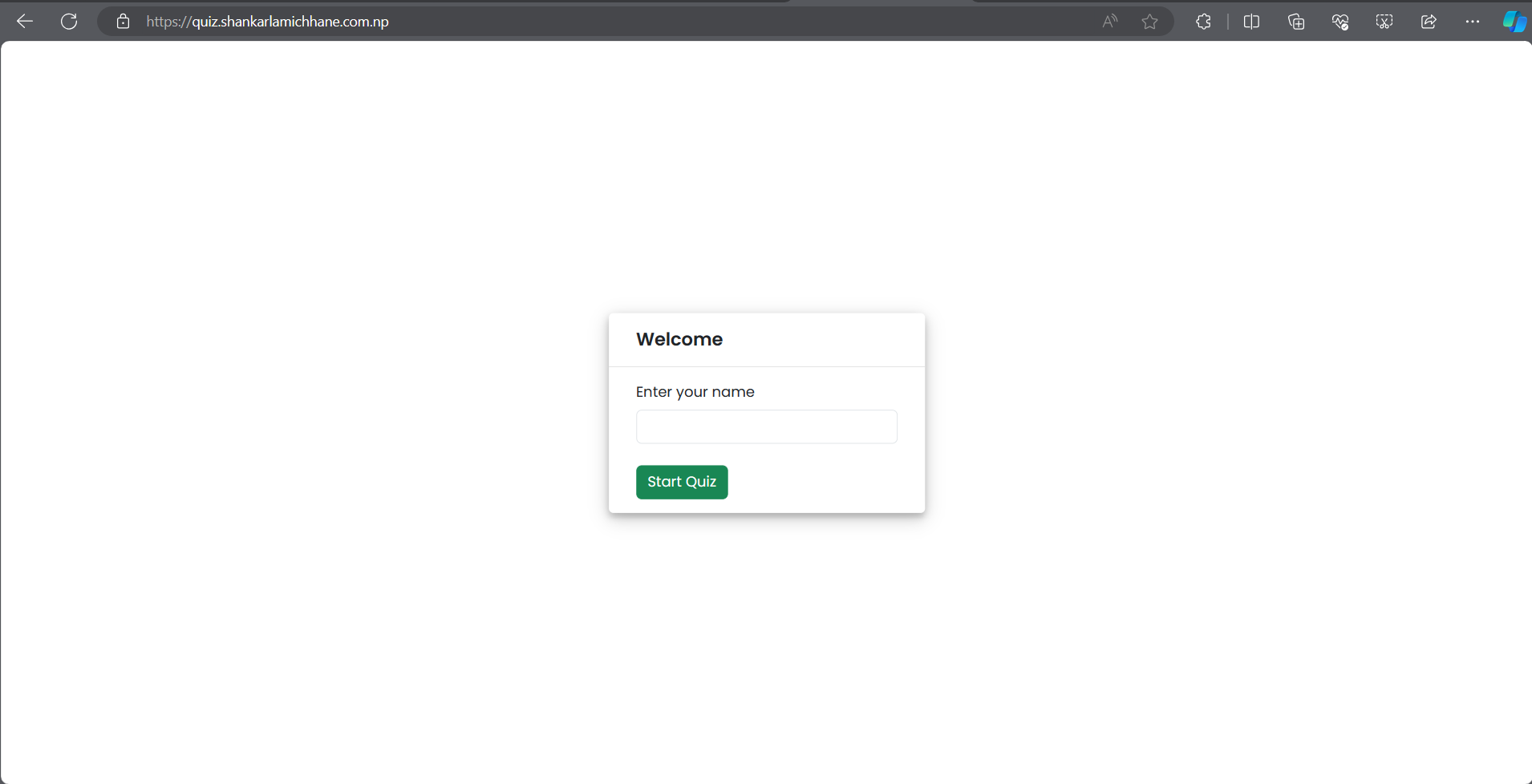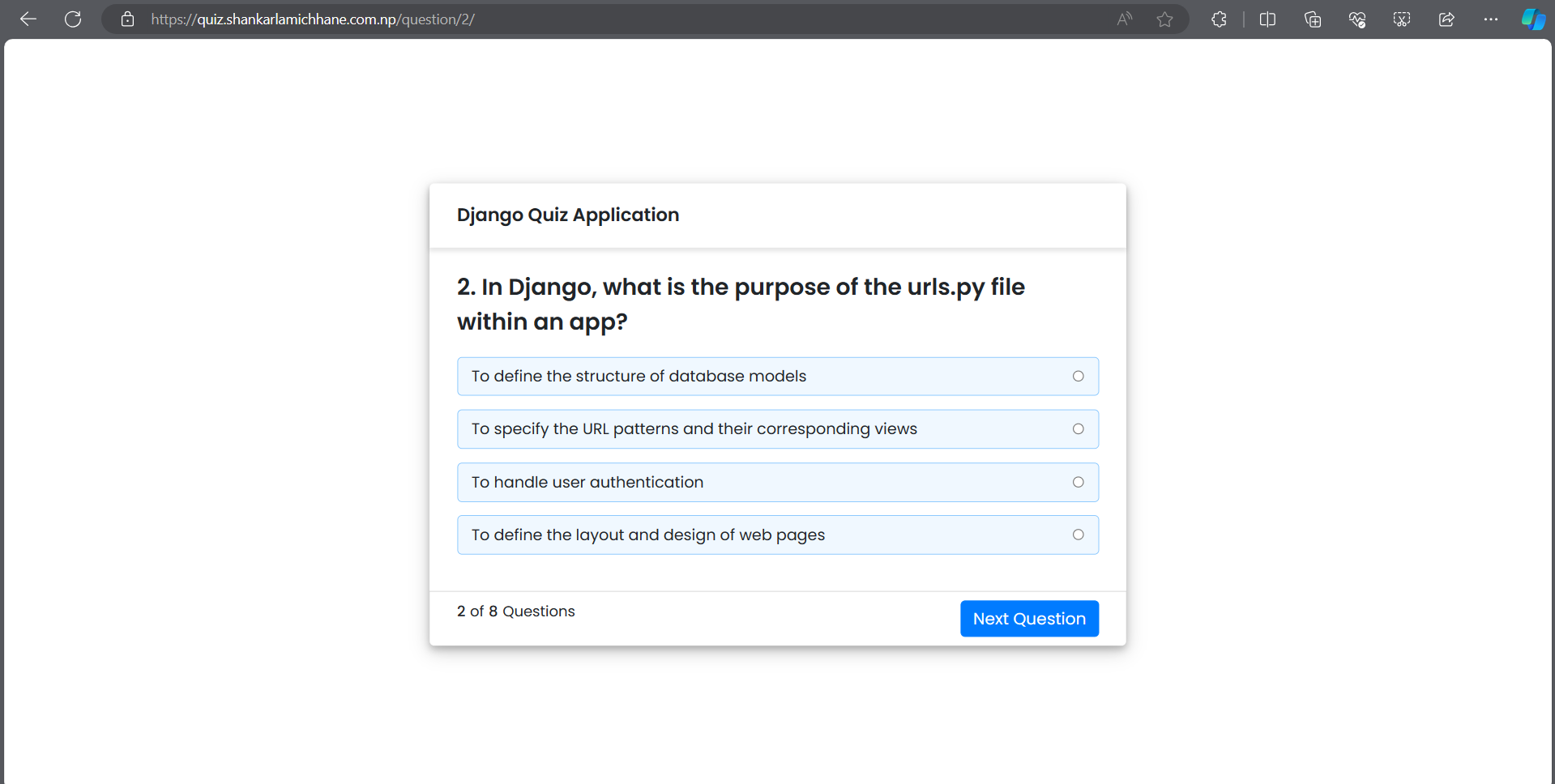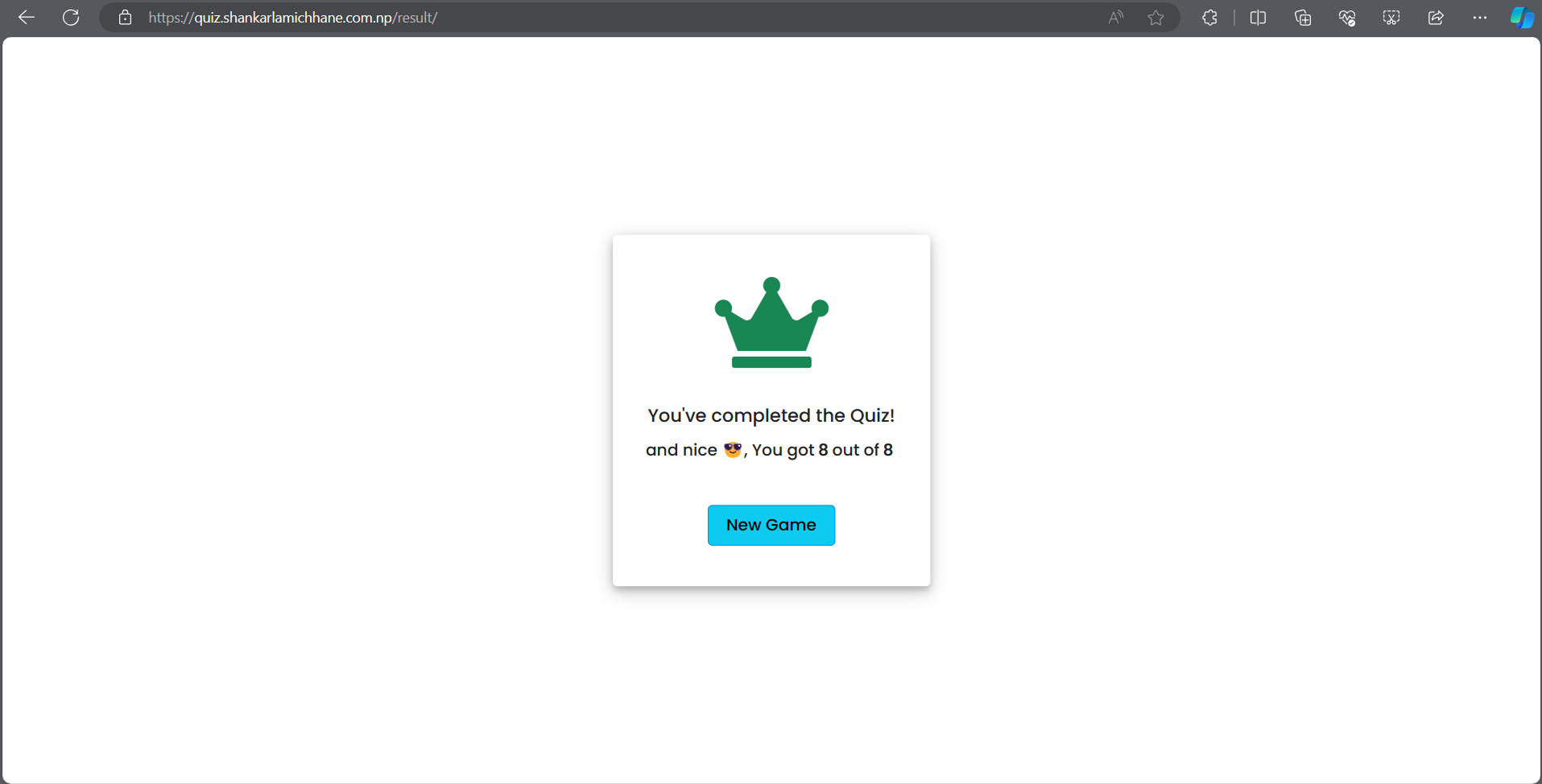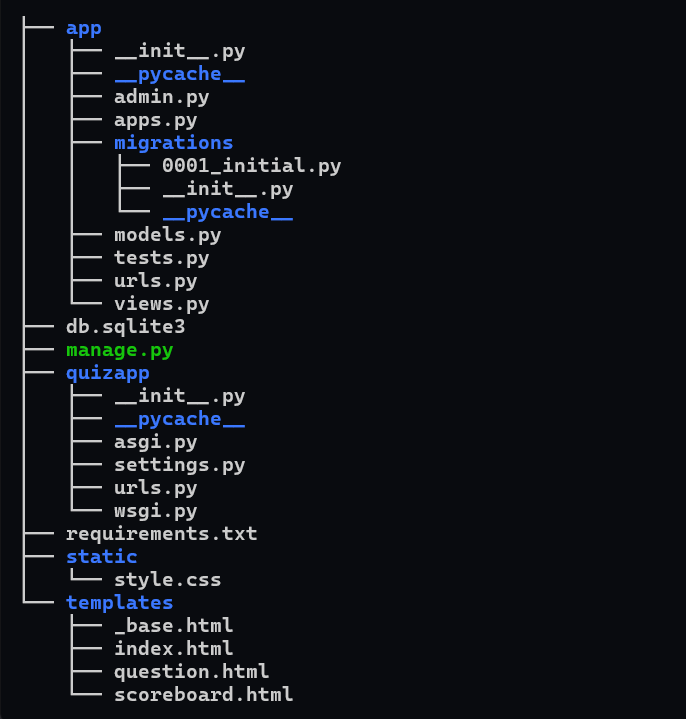Step-by-Step Guide to Building a Quiz App in Python Django
 Shankar Lamichhane
Shankar Lamichhane
Understanding the application - What will be the final product?
Excited to start building your own project in Django? Let's plan and imagine an interactive quiz app that you can play and share along.
In the first stage of our quiz app, we will design a friendly registration interface. Here, users can create their profile by entering their name.

Once registered, users will dive into the heart of the app - the quiz questionnaire section. Users will navigate through the questions, selecting their answers.

Finally, after completing the quiz, users will land on the scoreboard page. This dynamic scoreboard will show their performance, displaying the achieved score out of total score.

By the end of our journey together, we’ll have a fully functional quiz app that you can share with others!
Overview of project folder structure

Flow of project execution
Start Django project
We kick off our quiz app journey by creating a new Django project. This involves setting up the project structure, configuring settings, and preparing the environment for our app.
Views (Render HTML Template)
Next, we will move into views, which are the backbone of our app's logic. We'll learn how to create views that render HTML templates, allowing us to display dynamic content and interact with users
URLS (Register views)
To make our app accessible, we'll register views with URLs. This step ensures that users can navigate to different sections of the app, such as registration, quiz, and scoreboard.
Database design: Models
In this section, we dive into Django's powerful ORM (Object-Relational Mapper) to define models for our app. Models represent database tables and allow us to structure data logically, including relationships between entities like users, quizzes, and scores.
Connecting application and database
Finally, we'll connect our Django application to the database, ensuring seamless data flow between the frontend (HTML templates and views) and the backend (models and database).
By the end of this journey, you'll have a solid understanding of Django's core concepts and how to implement them to create a fully functional app!
And Hurray we completed a Quiz app with Django. Happy Coding!
Subscribe to my newsletter
Read articles from Shankar Lamichhane directly inside your inbox. Subscribe to the newsletter, and don't miss out.
Written by

Shankar Lamichhane
Shankar Lamichhane
Hi, I’m Shankar — a Sr. Software Engineer specializing in Python, Django, and DevOps. I build scalable web applications, APIs, and cloud-native systems, with a focus on clean architecture and backend automation.